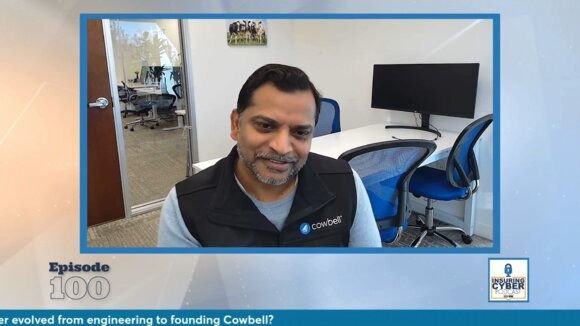When it comes to buy insurance in Texas—be it auto, home, health, or life—Texans often wonder whether purchasing directly from an insurance company is the most affordable option. The idea of cutting out the middleman seems like a logical path to savings, but the reality is more complex. This comprehensive blog post will explore all aspects of this question, including how insurance is priced, who sells it, what affects costs, and the pros and cons of buying direct.
Understanding the Basics of Insurance Distribution
In Texas, insurance policies can be purchased through various channels, each offering different experiences, support, and pricing models. The most common ways include:
- Direct Purchase from Insurance Companies – Buying directly from an insurer through their website, call center, or in-house agents.
- Captive Agents – Licensed agents who represent only one insurance company.
- Independent Agents/Brokers – Professionals who represent multiple insurance companies and provide comparative quotes.
- Online Comparison Platforms – Aggregators that display quotes from multiple providers but do not sell insurance themselves.
Each channel has its own cost structure, which can influence the final price you pay for your insurance policy.
How Insurance Pricing Works in Texas
To understand whether buying directly is cheaper, it’s important to know how insurance pricing is determined:
1. Regulation by the Texas Department of Insurance (TDI)
Insurance companies operating in Texas must file their rates and policy forms with the TDI. This means that companies cannot arbitrarily set prices—they are subject to state regulation to ensure fairness and competition.
2. Risk Assessment Models
Prices are largely based on risk, which includes factors such as:
- Driving record
- Credit score (for auto and home policies)
- Age and gender
- Location (ZIP code)
- Claims history
- Type and amount of coverage
Because these factors are unique to each person, what’s cheaper for one person may not be cheaper for another.
The Direct Purchase Option
What It Means to Buy Direct
Buying direct typically means using the insurance company’s website or calling their sales hotline to purchase coverage. This eliminates traditional insurance agents from the process.
Advantages of Buying Direct
- Convenience: Available 24/7 with instant quotes and policy issuance.
- Transparency: Easy to compare coverage options online.
- Speed: Digital applications often lead to faster approval.
- Lower Administrative Costs: May lead to reduced premiums.
Disadvantages of Buying Direct
- Limited Personalization: You may not get coverage tailored to your specific needs.
- No Advocate: In the event of a claim dispute, there’s no independent agent to advocate for you.
- Complex Policies: Without guidance, you may underinsure or overpay for unnecessary coverage.
Working with Captive and Independent Agents
Captive Agents
Captive agents represent one insurer and offer products solely from that company. Think of companies like State Farm or Allstate.
Pros:
- Specialized product knowledge.
- Face-to-face service.
- Can offer unique discounts available through agents only.
Cons:
- Limited to one company’s offerings.
- May be more sales-focused than advisory.
Independent Agents and Brokers
These professionals work with several insurance providers and help clients find the best deal.
Pros:
- Access to multiple insurers and competitive pricing.
- Tailored advice based on your needs.
- More holistic financial planning.
Cons:
- Some brokers may charge consultation fees.
- Potential for bias toward higher commission products.
Is It Actually Cheaper to Buy Direct?
This is where things get nuanced. Here are the factors to consider:
1. Standardized Rates in Texas
Many people assume agents add fees to insurance products, but in most cases, the same policy costs the same whether you buy it directly or through an agent. This is because:
- Insurers pay agents from their operating costs (commissions).
- Rates are filed and regulated with the TDI.
Bottom line: You’re likely to pay the same premium either way, but the value comes from the advice and service received.
2. Exclusive Online Discounts
Some insurers offer online-only discounts when you purchase directly. For example:
- GEICO offers lower rates for customers who complete the process online.
- Lemonade provides competitive home insurance through a fully digital platform.
However, these savings might be offset if the online quote lacks coverage nuances that an agent would recommend.
3. Bundle Deals and Complex Portfolios
When bundling auto, home, and life insurance, agents often have access to multi-policy discounts that aren’t always reflected online. For example:
- Independent agents can compare bundle rates across providers.
- Direct channels may lack bundling flexibility across different carriers.
Scenario-Based Comparisons
Scenario 1: A Young, Single Driver in Dallas
- Buying Direct: They go to Progressive’s website and purchase auto insurance in 15 minutes with a small discount for buying online.
- Agent Route: An independent agent finds a lower rate with Safeco, including a telematics discount and broader coverage.
Verdict: Agent wins for better coverage and price.
Scenario 2: A Retired Couple in Austin with Two Cars and a House
- Buying Direct: They struggle to compare homeowners’ coverage and fail to add water backup coverage.
- Agent Route: Captive agent from State Farm offers bundle savings and custom coverage tailored to the home’s location and risk profile.
Verdict: Captive agent wins for personalized advice.
Scenario 3: Tech-Savvy Millennial in Houston
- Buying Direct: They prefer digital apps, paperless billing, and online claims service.
- Agent Route: Finds similar coverage but prefers the convenience of managing it all online.
Verdict: Direct purchase works best here.
The Role of Technology in Insurance Sales
In Texas and beyond, the rise of InsurTech has changed the way policies are sold and managed. Companies like Lemonade, Root, and Hippo use artificial intelligence to provide instant quotes and fast claims processing. While these innovations improve access and reduce costs, they may also eliminate the human touch.
If your insurance needs are simple, tech-driven platforms can save time and money. For complex needs, a human agent often provides more thorough protection.
Key Considerations Before You Buy
✅ Evaluate Your Insurance Needs
Think about your lifestyle, property, and family situation. Are there any unusual risks you need coverage for?
✅ Shop Multiple Quotes
Whether through direct channels or an agent, comparing quotes ensures you’re getting the best value.
✅ Ask About Discounts
Texans may be eligible for discounts based on:
- Defensive driving courses
- Anti-theft devices
- Low-mileage driving
- Veteran status
- Home security systems
✅ Read the Fine Print
Always review:
- Deductibles
- Policy exclusions
- Claim handling processes
✅ Check the Company’s Reputation
Use resources like:
- Better Business Bureau (BBB)
- J.D. Power insurance satisfaction rankings
- Texas Department of Insurance consumer complaint index
FAQ: Direct vs. Agent Insurance in Texas
Q: Will I pay more if I use an insurance agent?
A: Not necessarily. Most agents are paid by insurers, not by customers. Premiums are typically the same whether you buy through an agent or online.
Q: Are online insurance policies safe and legitimate in Texas?
A: Yes, as long as you’re buying from a licensed and regulated provider. Always check with the Texas Department of Insurance.
Q: Can agents offer better coverage options?
A: Yes. Agents can offer riders, endorsements, and advice that might not be obvious or available online.
Q: How do I know if I’m getting all available discounts?
A: Ask your agent or review the discount section when quoting online. Some discounts may require documentation.
Q: Do independent brokers favor higher-priced policies for commission?
A: Reputable brokers prioritize long-term relationships and satisfaction over short-term commissions.
Conclusion: What’s Best for You?
Buying insurance directly from a company in Texas can be a smart move for tech-savvy individuals with simple needs. It offers speed, convenience, and sometimes minor savings. However, for those with complex insurance needs, multiple assets, or who prefer personalized service, working with a local agent or broker may provide better value in the long run.
Ultimately, the cheapest option depends on your specific situation. The most effective strategy is to compare quotes from both direct and agent sources and weigh not only the cost but also the coverage, service, and peace of mind you’ll receive.
Read More:
- How Much Condo Insurance Do I Need? A Best Calculator for Ohio Residents
- Understanding the Perils Covered in Manufactured Home Insurance in Texas
- Top 10 Insurance Companies in California: Trusted Providers for Every Need
- Exploring Alternatives to Sentry Insurance and Church Mutual Insurance Company
- Duration of Long Term Disability Insurance in Oklahoma: What You Need to Know




